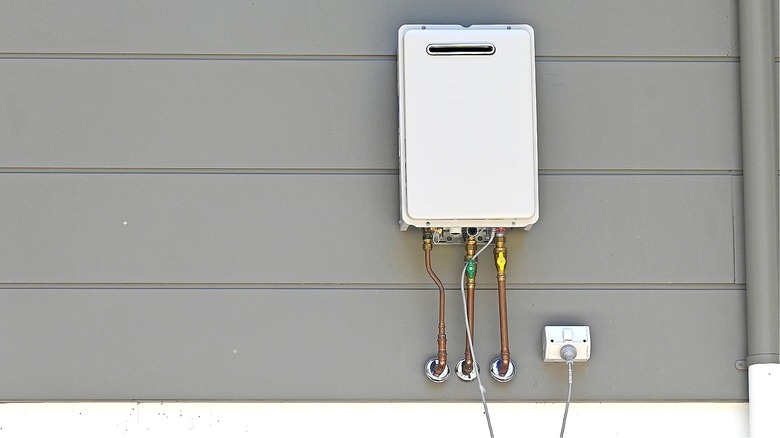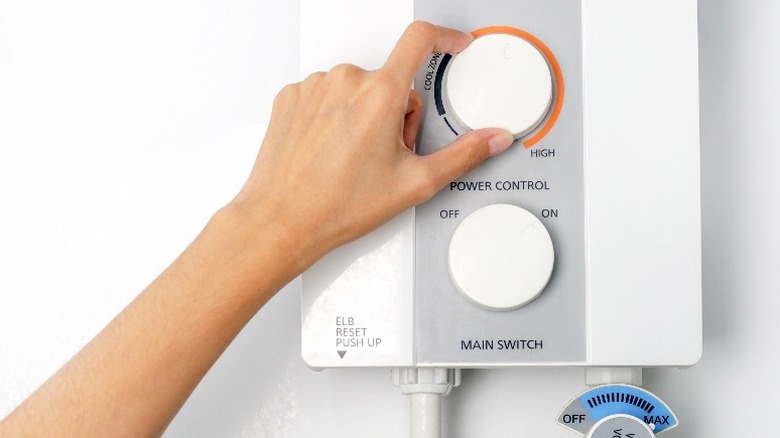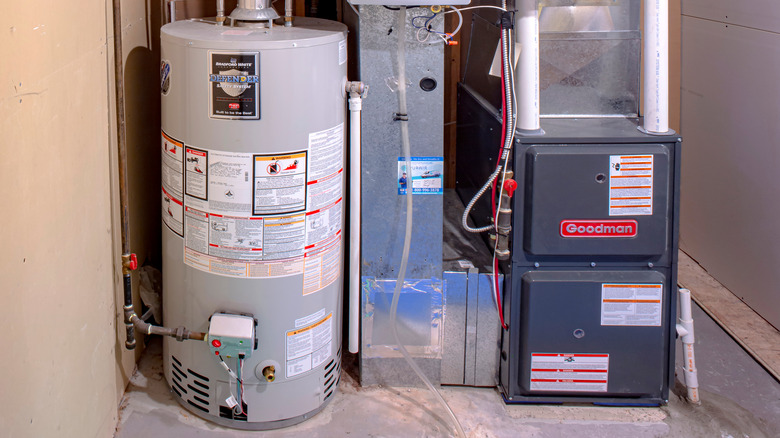Is It Safe To Store Your Water Heater Outdoors?
Water heaters can take up a good bit of space depending on the model, and they aren't exactly visually appealing. While some water heaters are hidden away in basements, attics, garages, or small closets, you may be wondering if putting one outside is a good option and if it's safe to do so. Depending on the climate where you live, installing your water heater outside could be a great solution for saving space and keeping your home aesthetically pleasing.
Certain tankless water heaters are built to be outside, so therefore perfectly safe, but it's important to take precautions, especially if you live in a place that has harsher winters. The last thing you want is for your water heater to freeze, so it's important to make sure the heater and the pipes are properly insulated. While many outdoor models are made to withstand drops in temperature, you can try wrapping your heater and pipes with heat tape to keep them warm in colder weather. It's also important to make sure the heater's vents aren't being burdened by high winds, as this could contribute to freezing, and to keep them safely clear of leaves.
Tankless water heaters
Tankless water heaters are a great, safe option if you're looking to install outside. For electric water heaters, you'll want to have a shelter for protection from rain and snow, as moisture could damage the electrical parts of the machine. You should also drain electric heaters if the power shuts off or if you won't be home for more than a few days. This safety measure can help prevent the water inside the heater from freezing, expanding, and ruining the appliance.
While shelter isn't as big of a concern for gas-powered models, water heaters that use gas should be kept away from windows and doors because they emit carbon monoxide. Make sure to check your local regulations about placement of outdoor water heaters, especially if you want a gas model.
Having your water heater outdoors and out of the way can be convenient, but it also means your heater will be farther away from your appliances. One tankless heater may become overwhelmed if it's heating all the water you're using, especially if your house is larger. Alternatively, installing multiple tankless heaters can solve this issue, but it's important to consider what the heater will be used for and where it will be placed to ensure you're not without hot water. Single outside water heaters are ideal for spaces like pool houses and outdoor showers.
Other types of water heaters
Water heaters with tanks can sometimes withstand being outdoors if you live in a place with warmer weather, though they shouldn't be installed outdoors without a shelter or if you experience cold weather. To be safe, the shelter needs to be weatherproofed and include a base for the heater to be placed on, since it shouldn't be directly on the ground. You may also consider purchasing an insulation blanket to help your water heater maintain its temperature. Be cautious, though, because having this type of water heater outside can increase your electric costs and take longer to heat. Indoor installation is a better option for most water heaters with tanks.
Heat pump water heaters shouldn't be installed outside or in a space that isn't heated, like garages or attics. Heat pump heaters are also generally larger than tank models, so they will take up more space in your home.
So if you're looking to install your water heater outdoors, an exterior tankless model is the safest bet, as long as you take the precautions to keep it protected in winter.


